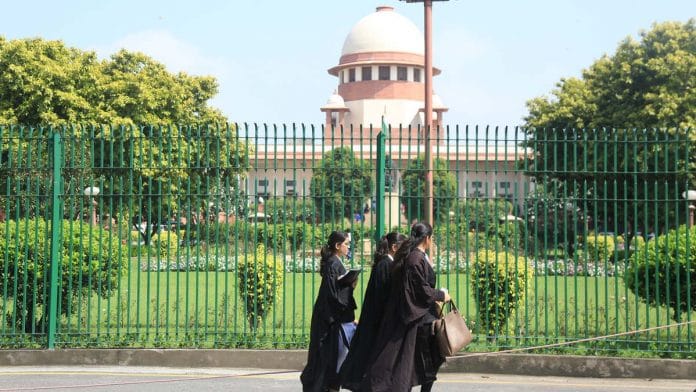The Bombay High Court recently rejected a petition asking it to order the Maharashtra-Goa Bar Council and the Bar Council of India to set up permanent committees for handling sexual harassment complaints under the Sexual Harassment of Women at Workplace Act, 2013. Every woman advocate in India is now outside the PoSH net.
The Division Bench of the Bombay High Court concluded that no employer-employee relationship exists between advocates and Bar Councils. That nexus is the linchpin of the PoSH Act. The Act’s architecture presupposes an employer capable of setting up an Internal Complaints Committee (ICC), enforcing penalties, and supervising compliance. Since Bar Councils are not “employers” and advocates are not “employees”, the judges held, PoSH’s machinery simply has nothing to attach itself to. Hence, there is no obligation to set up ICCs at state or national Bar Councils.
The Court noted that victims of sexual harassment could instead use the avenue of filing a complaint of misconduct under the Advocates Act.
Gap in India’s sexual harassment law
The Bombay High Court order reopens the faultline that has shadowed the PoSH Act since its birth. The Act traces back to the Vishaka guidelines rooted in the 1992 gang rape of Bhanwari Devi, a government field worker who was attacked by dominant-caste men while campaigning against child marriage.
Although the Supreme Court invoked constitutional guarantees to establish guidelines on redressing sexual harassment at work, it confined those safeguards to a model that required a formal employer. When Parliament finally codified PoSH in 2013, that structure was embedded in the Act. The duty to constitute ICCs, train staff and committee members, and create a safe working environment was placed wholly on an identifiable employer. The Bombay High Court Bench relied squarely on that design architecture to reject the current plea.
Where the PoSH Act ends, only the penal code is left standing. But criminal prosecution is a blunt, punishing tool. All the obstacles the PoSH inquiry was designed to soften resurface in a criminal courtroom. Evidence of sexual harassment is hard to collect, the standard of proof is exacting, and endless adjournments prolong the trauma for the complainants.
The conviction rate in cases of crimes against women is just 26 per cent, and trials for more than 90 per cent of cases are pending. When justice drags on for years, the process becomes the punishment.
Also read: Liberals don’t want Muslim women to demand rights in the Hindutva era. There’s no right time
Control without responsibility
It is true that Bar Councils do not control advocates’ terms of employment in the way that traditional employers do. However, merely redirecting women advocates facing sexual harassment from fellow advocates, staff, or even Bar Council members to the Advocates Act is completely unsatisfactory.
ICCs and local committees under the PoSH Act were designed for this kind of dispute. Their members are trained in gender-sensitive procedures, grasp the evidentiary patterns typical of harassment, and can craft remedial as well as punitive directions. None of these safeguards would be present in a general misconduct hearing under the Advocates Act.
The composition of Bar Councils compounds the issue. Women occupy only 2 per cent of elected seats in state Bar Councils. Senior male lawyers dominate deliberations in these councils, reflecting the ‘old boys clubs’ tag. Expecting such bodies to investigate sexual misconduct claims with neutrality, confidentiality, and survivor-centred empathy is unrealistic.
When a special forum and process are created, the relief and platform they offer must be accessible to everyone facing complaints of such nature. That is why the PoSH Act should be reimagined as a forum for civil redress of sexual harassment more generally. An ICC should be constituted in every institution or organised profession, regardless of whether an employer-employee relationship exists. The Act should extend to covering the ambit of Bar Councils as well. The district-level local complaints committees must have explicit jurisdiction to hear such cases from women advocates. Right now, their remit is also restricted by the employment nexus.
The legal profession must start taking harassment, especially sexual harassment, seriously. The Australian Law Council has developed a National Model Framework Addressing Sexual Harassment, and the UK’s Solicitors Regulation Authority has rules for dealing with sexual misconduct allegations. It is high time India adopted a similarly systematic response. Such a move would embolden women to remain within the sphere of advocacy—currently, only 15 per cent of practising advocates are women. It would also create a clear path to justice in incidents like last month’s Kerala case, where a woman junior advocate alleged that her senior had assaulted her multiple times.
If the Bar can discipline lawyers for missing gowns, it can and must police harassment in its own corridors. The law should not look the other way.
Jwalika Balaji is a lawyer and Research Fellow at the Vidhi Centre for Legal Policy. Her X handle is @JwalikaBalaji. Views are personal.
(Edited by Prasanna Bachchhav)






